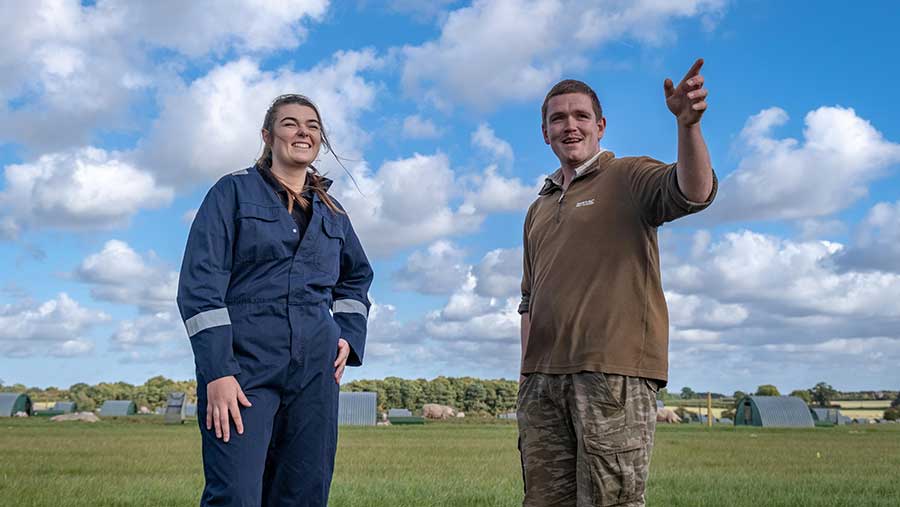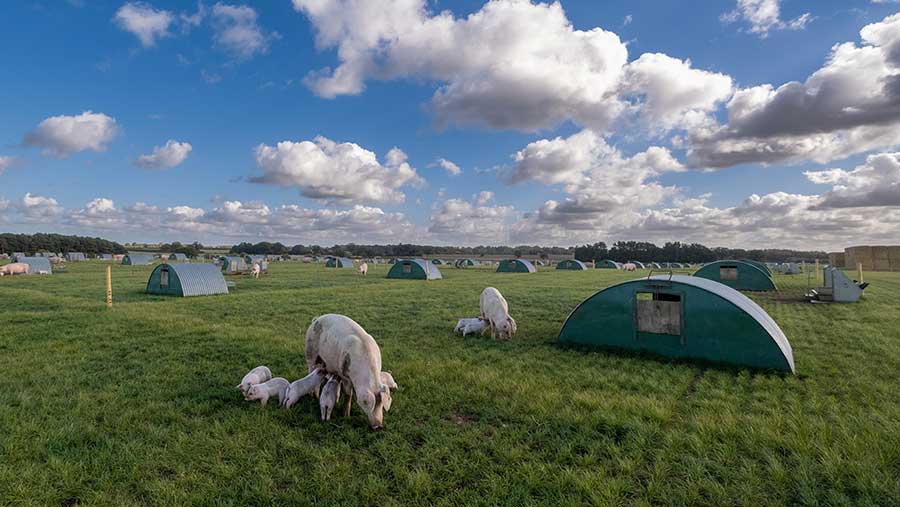Advertiser content
Working towards a more transparent supply chain from farm to fork
About the author
 Matt Dight is head of sustainability at Pilgrim’s UK.
Matt Dight is head of sustainability at Pilgrim’s UK.
It’s been an incredibly challenging 18 months for the UK pig sector.
Farmers have been battling backlogs on farms, pressures associated with skills shortages, a rocky geopolitical climate and rising production costs, all while continuing to feed the nation as inflation levels continue to skyrocket and consumers feel the pinch.
As the largest producer and processor of higher-welfare pork, we’re working hard to support our farmers to get through these challenging times together.
Leveraging our position as a pig production integrator is key to making this happen, and we understand that we can only work towards a more sustainable future by bringing the whole supply chain closer together.
So, how are we doing that?

© Pilgrim’s UK
Paying a fair price for our farmers
In an industry where profit margins are extremely tight, we need to share the load and create support packages to support pig farmers in their hour of need.
During Covid-19, we worked closely with our retail partners to establish new pig pricing models based on the cost of production.
This was to ensure our farmers are paid a fair price for their animals, and to help them keep their businesses afloat as they continue to face external headwinds like rising input costs.
British pig farmers produce pork to high standards but cannot continue to do so at such a significant financial loss.
This investment is a direct response to some of the most challenging conditions the pig sector has ever faced.
This is not only the right thing to do, but it ensures we continue to pay our farmers a fair price while maintaining our quality and high-welfare standards.
We hope this model offers our pig-farming partners greater financial security while exports remain in decline, as the cost of feed stays sky-high and as the ongoing battle between supply and demand lingers.

© Pilgrim’s UK
Understanding the challenges faced by every corner of the supply chain
We know that a sustainable supply chain means supporting the people within it, including our farming partners.
To do that, it’s important we understand the challenges and experiences of every person within our network.
This was highlighted in our recently published Human Rights Impact Assessment – a six-month project, jointly funded by Pilgrim’s UK, Co-op and Waitrose, which looked in-depth at the human elements of our vertically integrated pork and shared-lamb supply chains.
This was a first of its kind in the pork and lamb sectors globally which raised some interesting issues and challenges for the industry while also highlighting the positive benefits of a cost-of-production model for pig farming.
It also emphasised the advantages associated with the long-term relationships with our lamb farmers.
The action plan has been published on our website and we look forward to working with as many different stakeholders and retail partners as possible to continue to improve the lives of those working in our supply chain.
The results and the joint action plan agreed with Pilgrim’s UK and its retail partners designed to tackle some of the more challenging issues faced by the supply chain surrounding health and safety training, mental health, gender discrimination and access to grievance mechanisms can be found in the Human Rights Action Plan.
Provided by
Pilgrim’s UK is Britain’s biggest higher welfare pig farmer and producer of sustainably produced quality pork products. A division of Pilgrim’s UK Corporation, our business is part of the second largest food company in the world, whose team farm, process, prepare, package and deliver fresh, frozen and value-added food products for sale in more than 100 countries.
Our sustainability effort is guided by our vision to become the best and most respected company in our industry, creating the opportunity of a better future for our team members.
Pilgrim’s UK 2030 is our way of saying sustainability guides everything we do. It combines our vision, focus and targets as we take on the three big challenges of our time. Our business is already strong, but we want to go much further. Our progress is being built on five core pillars: Sustainable farming; sustainable food production; sustainable packaging; sustainable business and community; sustainable products.
Find out more at pilgrimsuk.com/sustainability
